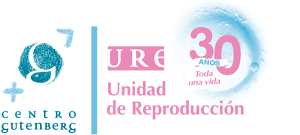Can I get pregnant if I have Polycystic ovarian syndrome?

Polycystic ovarian syndrome (PCOS) is the most common endocrine condition in women of childbearing age; in addition to making conception more difficult, it can also be related to women’s health problems from the time the begin developing in their mother’s uterus and into old age.
The prevalence of polycystic ovarian syndrome in the female population ranges from 6% to 15%. It manifests as hyperandrogenism (when a female produces more male hormones than usual), which translates into an increased amount of body and facial hair (hirsutism), acne, a tendency for weight gain and obesity, ovulatory problems and a unique ovarian morphology, among others.
In a not insignificant percentage of women there is an association between polycystic ovarian syndrome and insulin resistance, believed to affect over 50% of women with PCOS.
PCOS is normally diagnosed during adolescence due to irregular menstrual cycles, the presence of acne, increased amounts of body hair, etc. Its main repercussion in the medium‑term is usually infertility, while in the long‑term it leads to a greater risk for developing diabetes mellitus, hypertension, elevated cholesterol… as well as an increased risk for endometrial cancer as females with PCOS menstruate less often.
What are the causes of polycystic ovarian syndrome?
The pathophysiology of this chronic, endocrine and gynaecological condition is still unclear. However, its heterogeneous characteristics of clinical presentation at the reproductive, metabolic, and psychological levels suggest that genetic, metabolic, endocrine, environmental, and lifestyle factors are all involved in its onset.
This means that a genetic predisposition, along with epigenetic alterations and environmental factors, may contribute to the development of polycystic ovarian syndrome.
Can polycystic ovarian syndrome impact my chances of getting pregnant?
Polycystic ovarian syndrome is the leading cause of infertility in females as it is a condition that causes ovulatory issues. In these cases, the main objective of PCOS treatment to improve the female’s ability to ovulate is to improve lifestyle habits, especially in patients with obesity, hyperandrogenism and/or insulin resistance.
As we have already mentioned on this blog, obesity has a negative impact on pregnancy. Pregnancy rates are approximately 30% lower in women with obesity compared to women of normal weight. PCOS and obesity are also associated with an increased risk of miscarriage, birth defects, gestational hypertension, diabetes, and complications during pregnancy.
What options are there for someone with infertility associated with polycystic ovarian syndrome?
For some patients, simply improving their weight may improve their ability to ovulate. For this, lifestyle changes are often recommended.
These adjustments include a reduced caloric intake and increased physical activity. The goal should be to lose a minimum of 5 to 10% of their initial weight in order to see an improvement in metabolic parameters. A hypocaloric diet consists of an intake of between 1,200 and 1,400 kcal per day for three months. This must also be accompanied by moderate exercise for about 50 minutes a day, three to five times a week, for a minimum of six months.
In cases of morbid obesity, bariatric surgery can play a role in improving the health of women with polycystic ovary syndrome. In women of a normal weight, the recommendation will be to avoid weight gain.
It is possible to turn to medication that can increase one’s ability to ovulate or which can induce ovulation, such as metformin, clomiphene citrate, letrozole or gonadotropins. These drugs can be used in treatment with different assisted reproduction techniques, such as timed intercourse, artificial insemination and in vitro fertilisation. Whether or not the treating doctor recommends one technique over another will depend on the diagnosis of each particular couple.
Another reason to control the issues associated with PCOS is that pregnant women with this condition have an increased obstetric and neonatal risk, such as higher odds of developing hypertension and preeclampsia, gestational diabetes, pre‑term delivery, low birth weight, and macrosomia (an overweight foetus).
As you can see, polycystic ovarian syndrome is a problem that can significantly affect a woman’s fertility. For this reason, at URE Centro Gutenberg we recommend that you consult with fertility specialists about your situation so that your case can be assessed and properly handled.
Contact us and request your appointment with URE Centro Gutenberg. We will be happy to help you. Also, the initial consultation is always cost‑free.

